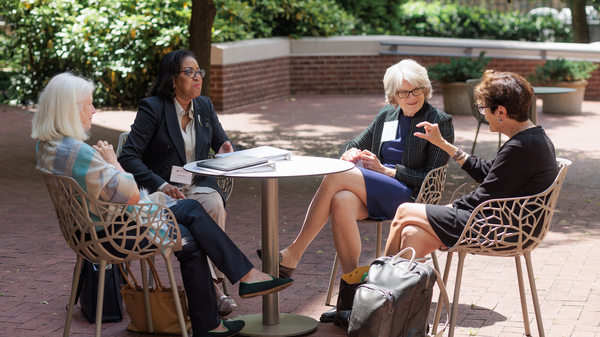Resources: Let’s start out by asking what brought you to RFF. Why are you interested in improving environmental decisionmaking?
Barbara Kates-Garnick: I was first introduced to RFF when I was a graduate student, and I relied on RFF to provide an analytical framework for the work that I was doing—so, I feel like I’ve been part of the organization indirectly for many, many years. Linking the environment and energy has been important for my entire career. This linkage continues to be important as new actors, players, and imperatives move the energy transition forward. For me, my interest in these topics revolves around not just decisionmaking, but also around my passion for future generations.
Given that you’ve worked in the energy and environmental fields in different sectors—government, academia, and elsewhere—what would you describe as the role for RFF’s independent research and analysis?
RFF is critical for understanding the nexus between environmental policy, energy policy, and a successful energy transition. I think RFF is a “crown jewel” that helps decisionmakers in Congress, the federal government, the states, and the private sector as they all wend their way through very complex problems of long-term duration.



